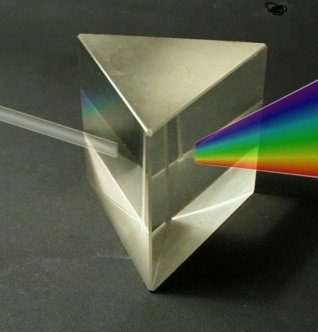Definition of Socratic Ethics
Miscellanea / / November 23, 2021
Conceptual definition
Socratic ethics is the set of elaborations referred to doing well, which result from the various developments of the paradigmatic Greek philosopher Socrates. The condition of possibility of this way of acting is the development of virtue.

Philosophy training
When referring to Socratic ethics, it is necessary to first point out an important difficulty of character historical-philological, namely, that we do not know directly any textual source in which Socrates has left embodied his thought. The main source through which we can approach the philosophy Socratic are Plato's dialogues and, to a lesser extent, Aristotelian work, as well as some comedies by Aristophanes. This supposes a series of controversies around the ideas of the Athenian philosopher and, even, about his own historical existence. Strictly speaking, the Socrates we know is the Platonic Socrates, the protagonist of most of the Dialogues, with various interlocutors.
Even with its disparate complexities, sources, and interpretations, the image of Socrates has been decisive for Western culture, especially its ethics; for, following Aristotle, he was the first to take as the object of his thought the definitions of moral things (Aristotle,
Metaphysics, 987 b1).Principles on which ethics unfolds
Socrates puts, at the center of philosophical reflection, not the universe and nature, but man himself. In this sense, the question about man's moral behaviors is constituted as a central aspect of his thinking, governed by the Delphic maxim "know yourself." Thus, Socrates translates the investigation on the physis towards a look on the inner self. With this movementWhat is highlighted is the importance of philosophy, not as a mere knowledge for its own sake, but in its practical sense. For Socrates, man had to develop his inner knowledge, since that research was what would allow him to orient his way of life towards the good.
Socratic ethics keeps, in this way, a close relationship with knowledge. Virtue (areté) is a mode of wisdom and no one can voluntarily do wrong; since those who sin always do so out of ignorance, as long as they do not know what is good. Now, virtue cannot be taught like any other knowledge, because it is practical knowledge: the discovery of virtues is not a mere intellectual operation, but requires that man become aware of his being inside of him. In this sense, wisdom is linked to ethics as a path of spiritual liberation. Its main forms consist of the domination of the soul over the body; the adaptation of life to the teleological order of the world; and, on the political level, on the subordination from the state to government of the wise.
The way to good
The task of philosophy is a strictly human task, inasmuch as the human being is an intermediate being between the animals, plunged in ignorance, and the gods, whose wisdom is absolute. Only man can, then, wish to know; Therefore, knowledge is permanently in a state of oscillation. That is why the Socratic virtue always results in an imperfect knowledge that, precisely for this reason, must be constantly worked on. Good is not imposed without difficulty, but man must make use of his Liberty to achieve it. Thus, for Socrates, wisdom implies a struggle against oneself, recognizing one's own ignorance in order not to be defeated by it.
The path to good will be, at the same time, the path to happiness and Justice. In Socratic ethics, happiness and virtue are identified. The true source of happiness is found within the soul, in its perfection. Everything else is a means to that end, but it has no value in itself. The proper business of man is to achieve spiritual perfection, against which, letting himself be overcome by Pleasure - from worldly pleasures as well as from luxury - leads to ignorance, and then in acting wrong.
Bibliography
MARTINEZ LORCA, A. (1980) "Socrates' ethics and his influence on Western thought", in Baética Magazine, 3, 317-334. Malaga University.
Topics in Socratic Ethics

